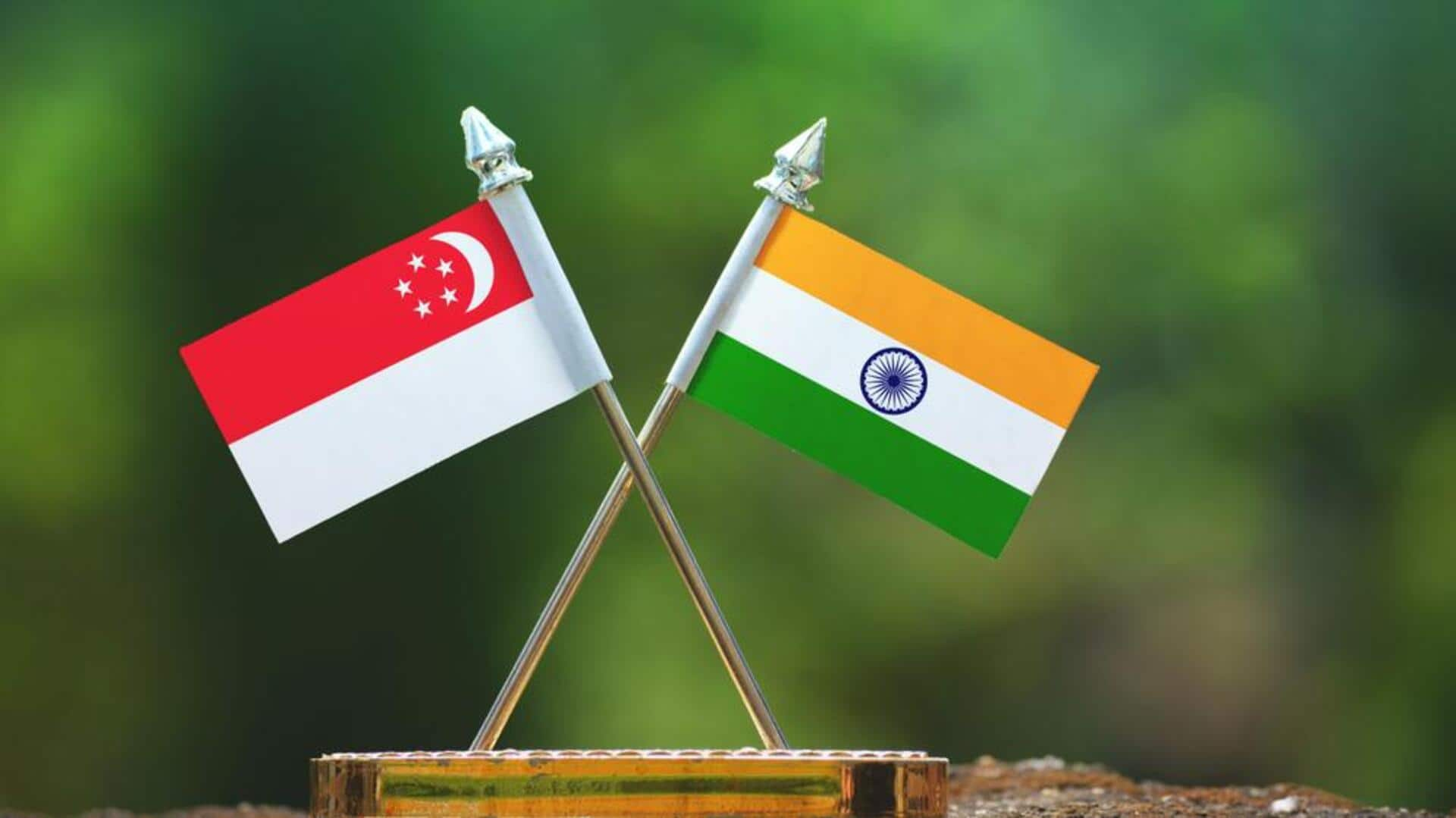
India, Singapore strengthen AI, chip ties as US tariffs loom
What's the story
India and Singapore have agreed to bolster their cooperation in artificial intelligence (AI) and semiconductors. The announcement was made during a joint statement by Prime Minister Narendra Modi and his Singaporean counterpart Lawrence Wong in New Delhi. The move comes as part of India's strategy to strengthen trade relations with key partners, especially in light of the recent 50% tariffs imposed by the United States on Indian imports.
Strategic partnership
Agreements signed in various sectors
PM Modi emphasized the importance of technology and innovation in the India-Singapore relationship. He said, "Tech and innovation are pillars of our relationship." The two countries signed agreements covering a wide range of sectors, including shipping, civil aviation, and emerging technologies. Wong also announced plans to set up state-level skill centers in areas such as aviation and semiconductors to meet industry demand.
Tech hub
Wong's statement on new growth opportunities
Singapore's contribution to global chip production (10%) and semiconductor equipment output (20%) makes it a key player in India's goal of launching its first made-in-India semiconductors by year-end. The strategic partnership between the two countries is expected to open new growth opportunities, Wong said. Bilateral trade between India and Singapore is projected to reach $34.26 billion in 2024-25, according to official Indian data.
Investment impact
Singapore's major investments in India
Since 2000, Singapore has been a major source of foreign investment in Indian equity, accounting for nearly a quarter of all investments. The wealthy island nation has made significant investments in the manufacturing, finance, and real estate sectors. Wong's visit to India comes after German Foreign Minister Johann Wadephul expressed hope that an EU-India free trade agreement could be finalized by autumn.
Trade strategy
US tariffs on Indian imports
The US has doubled tariffs on Indian imports to 50% over its continued purchases of Russian crude oil. The move has shocked officials in New Delhi and accelerated efforts to secure trade agreements with other partners. This is particularly important as India seeks to diversify its trade relationships amid rising global economic uncertainties.